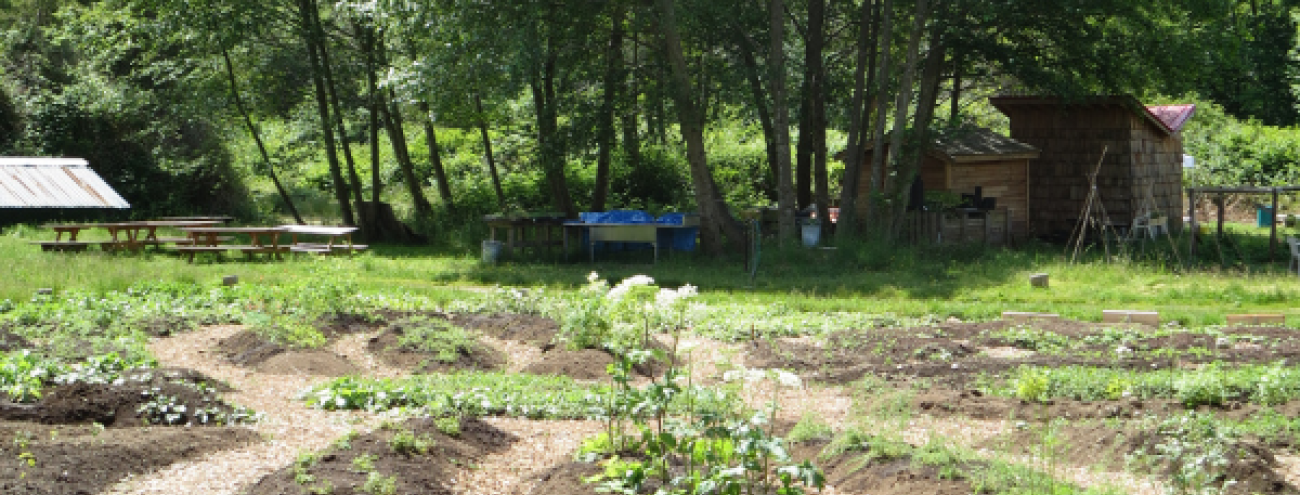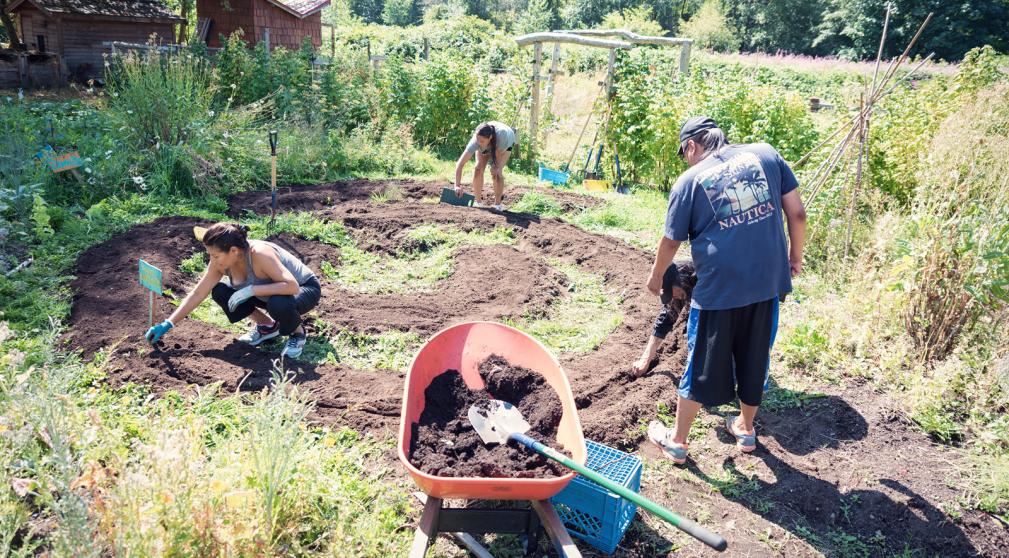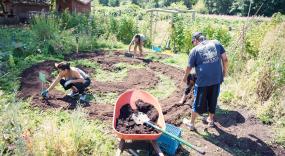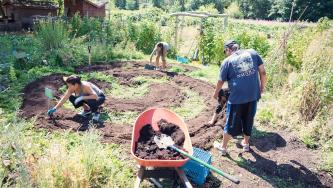
Indigenous Campus Living Laboratory at xʷc̓ic̓əsəm Garden
The Indigenous Campus Living Lab (ICLL) project aims to investigate how Indigenous land-based practices can influence UBC campus health and wellness environments and provide opportunities for ethical dialogue and mobilization of perspectives on Indigenous Health and Wellbeing.
Project Team
Eduardo Jovel, Associate Professor, Director, Indigenous Research Partnerships, Faculty of Land and Food Systems
Margaret Moss, Director, First Nations House of Learning, Provost Office
Tabitha Martens, Assistant Professor, Faculty of Land and Food Systems
Until recently, Indigenous health and wellness in Canada have been subsumed under a population-wide framework that focuses mainly on European western medical models. The Indigenous Campus Living Lab at UBC Farm's xʷc̓ic̓əsəm (/Hw ‘ts i ‘ts u sum-/) Garden will investigate how Indigenous land-based wellness knowledge and practices can influence UBC campus health and wellness environments, especially for Indigenous students, faculty, staff and community members.
The name xʷc̓ic̓əsəm means “the place where we grow”. The new living lab will build upon existing networks to reconcile a shared history of cultural disconnection to the land and its impact on wellness and wellbeing, and co-facilitate the development of socially responsive pathways for socio-cultural reciprocity, Indigenous resurgence and self-determination, and processes impacting community wellbeing. It is a collaboration between the faculty of Land and Food Systems and the First Nations House of Learning.
The project has three main objectives: improving UBC's capacity to deliver Indigenous wellness programming, promoting land-based engagement to support the health and wellness of UBC students, faculty and staff, and creating opportunities for ethical dialogue and mobilization of perspectives on Indigenous Health and wellbeing.
The research will be conducted in a community-based, culturally sensitive manner and will create access to traditional Indigenous health and wellness practices and spaces for the UBC community. Community activities include land-based health and wellness education, research and ethics, traditional medicine-making and harvesting practices and preserving and teaching Indigenous knowledge related to wellness practices The ICLL will also promote self-sufficient, community-driven approaches to Indigenous health and wellness research and respond to UBC community needs by fostering knowledge co-development and community engagement.
The ICLL will generate Indigenous scholarship by examining place-based expressions of Indigenous knowledge using Indigenous pedagogies frameworks, increasing collective understanding of individuals and societies in the context of Indigenous research. It will create a supportive and inclusive environment where members of the UBC community can engage with each other and with the land, fostering a deeper understanding of Indigenous health and wellness practices, and promoting the development of new and innovative approaches to advancing Indigenous health and wellness across Canada.


